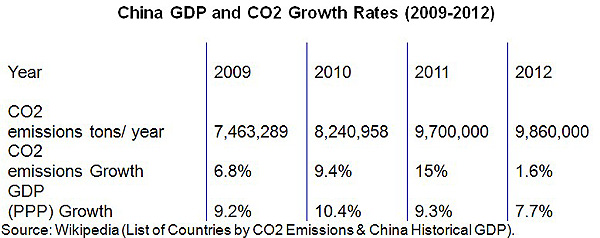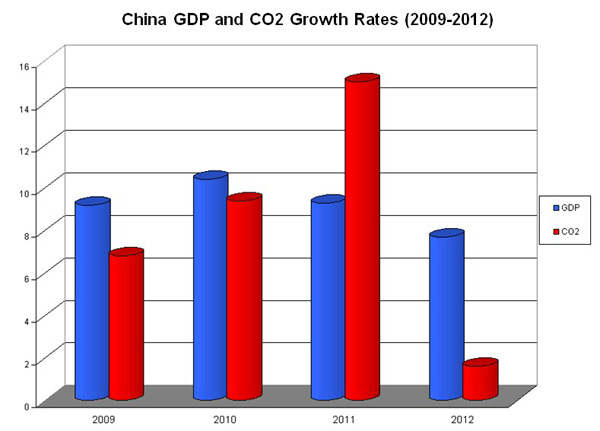 |
"The Party has worked to speed up the development of a socialist market economy, democracy, cultural development, social harmony and environmental protection,” president Xi Jinping said on the Third Plenum of the 18th Central Committee of the Communist Party of China (CPC). With these precise yet informative words the world had the first glimpse on how China will look in the coming 10 years.
The plenum was concluded with one comprehensive “decision” and several separate communiqués on what the central committee of the CPC believes are major issues facing the country. Among market economy, state security, government role and other issues of highest concern, one reform communiqué was devoted to environmental protection. It states: "In constructing eco-civilization, it is imperative to build a sound system and to protect the ecological environment through the system."
On the one hand, the Chinese government has shown that it is more than ever committed to protect the environment in direct means. According to the communiqué the new reform calls for paid use of natural resources, ecological compensation as well as enhancing the current system of protecting and administrating the ecological environment. This communiqué is best described as a long term plan aimed at defending the natural resources against any misuse. However, more detailed action plans and specific measures are yet to be developed in the days to come.
On the other hand, there are other indirect effects of the Third Plenum as many of the other reforms especially those related to economy will have equal if not greater impact on the country’s ecological environment. Among them are economic structural readjustment and growth sustainability and rebalancing.
In fact, the heat of the were-to-be-announced reforms was felt a bit earlier. Perhaps the most obvious insight was the statement by president Xi Jinping when addressed the eighth G20 summit. He said, "China has realized that it has to advance structural reforms in order to solve the problems hindering its long-term economic development, even though it will mean slower growth".
The same message was signaled by the Chinese premier Li Keqiang, who said, "As long as the economy runs within the reasonable range, we will keep the macro-economic policy generally stable, and focus on shifting the growth model and on structural readjustment." It has become obvious since that time that the Chinese economy, one heavily based on manufacturing industry is going to change at last. The anticipation is that the new structure will focus more on the services industry. To clarify more, there are two factors here, slower growth and less manufacturing, that should also have a positive effect on the ecological environment.
According to a study on “The relationship between carbon dioxide emissions and economic growth” by the University of Cambridge, data on major industrialized countries show there is a positive relation between GDP growth and CO2 emissions. However, the study also states that “data are highly variable over time and between countries,” hence it could be concluded that as long as the country’s GPD is heavily dependent on manufacturing with a presence of concentrated infrastructure construction the relationship tends to be positive. And that is the case of China.
Searching available data from online sources, China CO2 emissions showed peak growth in 2011 and historical slowdown just the year after. Although the linear relationship between GDP growth and CO2 emissions over the past three years is not clear enough in volume and in 2011 the relationship is even a reverse one, the overall trend shows a positive relationship. 
According to a recent report “Trends in Global CO2 Emissions: 2013 Report”, issued by the PBL Netherlands Environmental Assessment Agency, China's annual increase in CO2 emissions slowed down from average 10 percent over the past decade to only 3 percent in 2012. The report lists the most important factors as:
- The significant increase in hydropower capacity & output by 23 percent.
- The increase in using renewable energy and energy efficiency.
- The end of the economic stimulus package.
What matters for our discussion here is of course the end of the stimulus package that included investment in infrastructure and housing projects launched in 1990 and came to an end in 2010. Furthermore, the cement industry which is one of the major sources of CO2 in the atmosphere and the amount of conventional fueled transport needed in those projects, mounted the effect of the stimulus package on the levels of CO2 emissions.
Another factor that is yet to have significant effect is China’s economic restructuring where more weight will be shifted from the manufacturing industry to the service industry. Although it is a long term plan, many changes are already taking place. According to many observers, the services sector is already picking up in the country. This rebalancing process will not only secure sustainable growth outlook, it will also reduce pollution levels related manufacturing activities.
The last two factors that are expected to have a positive effect on the ecological environment are the country’s struggle for energy and what has been labeled as the "Chinese Dream". The country’s struggle for energy to maintain its growth puts it under constant pressure to keep planting renewable energy projects.
According to a valuable overview by Johnathan Moch entitled, "Renewable Energy in China - An Overview" on 16 July 2013, China currently generates 8 percent of its electricity from renewable resources while targeting to increase this share to 11.4 percent by 2015 and almost double it by 2020. The overview that was published on "ChinaFAQs: The Network for Climate and Energy Information" website, states that China is currently the world leading country in utilizing renewal energy sources.
Finally, the term “ecological civilization” holds a lot of insight. According to the Third Plenum documents, at the heart of the bold reforms lies the Chinese Dream to build a moderately prosperous society and realize the rejuvenation of the nation. It is suffice to say at the heart of any prosperous life lies a prosperous ecological environment.
In conclusion the Third Plenum has direct and indirect effects on China’s ecological environment. Where the direct effect is one related the specific communiqué on protecting the environment, the indirect effects are several related economic restructuring, growth rebalancing, securing energy and realizing the rejuvenation of the nation. Now the Third Plenum is over, China will definitely be environmentally different, more sustainable.
Note:
Quotations and information related to the Third Plenum were extracted from translated documents published by the Chinese News Agency “Xinhua”.
 Finland has more eggs in the Chinese basket than any other
Finland has more eggs in the Chinese basket than any other In pictures: PLA's digital equipment
In pictures: PLA's digital equipment  Protesters demonstrate during UN Climate Change Conference in Poland
Protesters demonstrate during UN Climate Change Conference in Poland  Self-made farmer billionaire donates 69 villas at hometown
Self-made farmer billionaire donates 69 villas at hometown Demolition of bizarre rooftop villa in Beijing still in progress
Demolition of bizarre rooftop villa in Beijing still in progress Service seminar for E China train attendants
Service seminar for E China train attendants  Supermodel-turned-designer
Supermodel-turned-designer Cheerleaders light up CBA regular season
Cheerleaders light up CBA regular season  Finland--anytime you want is right time to go: Ambassador
Finland--anytime you want is right time to go: Ambassador Maritime counter-terrorism drill
Maritime counter-terrorism drill Splendid views of cities blanketed with fog
Splendid views of cities blanketed with fog  Models dazzle at Int'l Yacht Model Pageant
Models dazzle at Int'l Yacht Model Pageant  How to apply for a green card in China
How to apply for a green card in China Annual Santa Claus parade held in Canada's Montreal
Annual Santa Claus parade held in Canada's Montreal Weekly Sports Photos
Weekly Sports PhotosDay|Week|Month